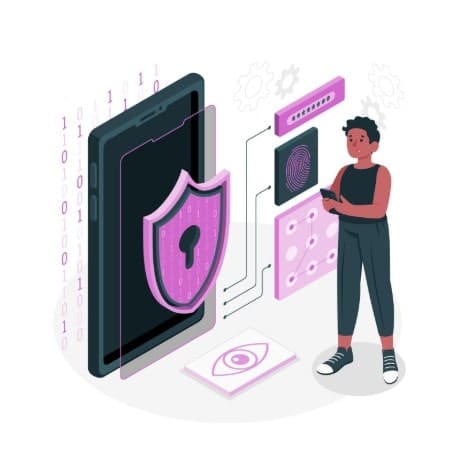Cyber Security Courses in Kenya
Cyber Security Courses in Kenya – With cyber threats escalating and organizations increasingly dependent on technology, pursuing a cyber security course in Kenya is both a strategic and rewarding career move.
This comprehensive guide explores the landscape of cyber security education in Kenya, from entry-level certificates to advanced diplomas and industry-recognized certifications.

Types of Cyber Security Courses Available in Kenya
1. Certificate Courses
Certificate programs are ideal for beginners or those seeking foundational knowledge.
Key Features:
- Duration: Typically 1 year (2 semesters)
- Entry Requirements: KCSE mean grade of D+ or equivalent
- Core Skills: Critical thinking, analytical skills, communication, basic IT maintenance, and legal/ethical considerations in cybersecurity
Sample Curriculum:
- Fundamentals of Information Security
- ICT & Ethics
- Cloud Computing and Security
- Cyber Law and Compliance
- Ethical Hacking and Penetration Testing
Institutions Offering Certificate Courses:
- Zetech University (Certificate in Cyber Security and Forensics)
- College of Human Resource Management (CHRM) in collaboration with ICSSPK
- Kamukunji Technical and Vocational College (KTVC)
Career Opportunities:
- Cyber Security Analyst
- IT Security Assistant
- Ethical Hacker (entry-level)
- Administrative Assistant
2. Diploma Courses
Diploma in cyber security programs provide a deeper, more technical dive into cybersecurity, suitable for those seeking advanced skills or career progression.
Key Features:
- Duration: 2 years (4 semesters)
- Entry Requirements: KCSE mean grade of C- or equivalent, or a relevant certificate
- Advanced Skills: Vulnerability analysis, threat monitoring, incident forensics, cryptography, cloud security, and AI in cybersecurity
Sample Curriculum:
- Cyber Security Essentials
- Computer Networks (CCNA)
- Cryptography
- Cyber Law
- Incident and Digital Forensics
- Artificial Intelligence in Security
Institutions Offering Diploma Courses:
- Zetech University (Diploma in Cyber Security & Forensics)
- KTVC (Level 6 Diploma)
Career Opportunities:
- Cyber Security Engineer
- Ethical Hacker
- Cloud Security Engineer
- Digital Forensics Expert
- IoT Security Specialist
3. Professional Certifications
For those seeking international recognition or specialized expertise, professional certifications are highly valued by employers.
Popular Certifications in Kenya:
- Certified Ethical Hacker (CEH): Focuses on penetration testing and vulnerability assessment
- Certified Information Systems Security Professional (CISSP): Covers advanced security management and operations
- Certified Information Security Manager (CISM): Emphasizes risk management and governance
- CompTIA Security+: Entry-level certification covering risk management, network security, and security protocols
Where to Study:
- InfoSec Institute, New Horizons, Training Connections, Global Information Tech, and SkillForge offer these certifications in Kenya
4. Online Cyber Security Courses
Online learning has taken the world by storm, and Kenya is no exception. Whether you want to learn at your own pace or can’t access a physical campus, online cyber security courses are a great option.
These courses are available through local institutions or international platforms like:
- Coursera (offering University of London and IBM certifications)
- edX
- Udemy
- Zalego Academy
- Alison
Most of these platforms offer both free and paid courses. You can start with the basics and gradually move to advanced topics. The best part? You can learn anytime, anywhere—even in your pajamas!
Requirements for Cyber Security Courses in Kenya
- Certificate Courses:
- KCSE mean grade of D+ or equivalent
- Other recognized qualifications may be accepted
- Diploma Courses:
- KCSE mean grade of C- or equivalent
- Relevant certificate plus 1 year work experience may be required
- Degree Programs:
- KCSE mean grade of C+ or higher
- Relevant diploma, professional qualification, or bridging course certificate
- Additional:
- Strong interest in technology and cyber security
- Analytical and critical thinking skills are advantageous
Why Study Cyber Security in Kenya?
- Kenya has witnessed a dramatic rise in cyber threats, with over 1.1 billion incidents detected by mid-2024 alone.
- The rapid adoption of digital services, mobile money, and cloud computing has made cybersecurity expertise a critical asset for businesses, government agencies, and individuals.
- The job market is booming, with many cybersecurity positions open in Nairobi alone, and top employers like Safaricom, M-Pesa Africa, and the National Cyber Security Center actively recruiting for roles such as risk analysts, ethical hackers, and cyber security engineers
Who Should Take a Cyber Security Courses in Kenya?
The beauty of cyber security courses in Kenya is that it’s for everyone. You don’t have to be a tech genius to get started. If you use the internet, cyber security knowledge can help you.
Here’s a breakdown of who should consider enrolling in a course:
- Students: If you’re in high school or university and are curious about technology, cyber security can be an exciting and rewarding career path.
- IT Professionals: Already working in IT? Upskilling in cyber security can open new career doors and boost your income.
- Entrepreneurs and Business Owners: Protect your company’s digital assets by understanding the basics of cyber hygiene.
- Government and Law Enforcement Officials: With increasing cybercrime, there’s a growing need for professionals who understand how to track, investigate, and prosecute digital crimes.
- Career Changers: Looking for a fresh start? Cyber security offers a dynamic and in-demand career path that welcomes people from diverse backgrounds.
Even if you’re just someone who wants to understand how to stay safe online, these courses can give you the tools to protect yourself and your family.
What to Expect: Learning Outcomes and Skills
Cybersecurity courses in Kenya are designed to blend theory with practical skills. Graduates are expected to:
- Perform routine maintenance and troubleshooting of IT infrastructure
- Analyze and respond to cyber threats
- Understand and apply cyber laws and ethical standards
- Conduct security assessments and penetration tests
- Develop and implement security policies and incident response plans
How to Choose the Right Course
When selecting cyber security courses in Kenya, consider:
- Your Career Goals: Entry-level vs. advanced roles
- Accreditation: Ensure the institution is recognized by relevant authorities (TVET, CDACC, KNQA)
- Curriculum: Look for a blend of technical, legal, and ethical content, plus practical labs or attachments
- Industry Partnerships: Programs linked with industry bodies or offering internships provide better job prospects
Cyber Security Career Opportunities in Kenya
So, what happens after you complete a cyber security course in Kenya? A world of opportunities opens up.
Whether you want to work for the government, cyber security companies in Kenya, a multinational corporation, or as a freelancer, there’s a demand for cyber security professionals everywhere.
Some popular cyber security roles in Kenya include:
- Cyber Security Analyst: Monitor and respond to threats in real-time.
- Penetration Tester: Simulate attacks to find security flaws.
- Network Security Engineer: Design and maintain secure network systems.
- Information Security Officer: Ensure an organization follows security policies.
- Digital Forensics Analyst: Investigate cybercrime incidents.
- Cybersecurity Consultant: Advise companies on best practices.
Entry-level jobs may include junior analyst roles, help desk positions with a security focus, or compliance support. As you gain experience and certifications, you can move into more strategic or leadership positions.
Cyber security professionals in Kenya are among the highest-paid in the tech sector, with salaries often outpacing those in traditional IT roles. Moreover, with the rise of remote work, you can access global job markets while living right in Nairobi, Kisumu, or Mombasa.
Conclusion
Cyber security in Kenya the fastest-growing and most vital career fields. Whether you’re starting with a certificate, advancing with a diploma, or aiming for global certifications, there are diverse and high-quality options available.
With the right cyber security course in Kenya & training, you can play a crucial role in securing Kenya’s digital future
How much is the cyber security course in Kenya?
The cost of cyber security courses in Kenya varies widely, typically ranging from $100 to $3,000 depending on the institution and course level.
What are the KCSE requirements for cyber security in Kenya?
To qualify for a degree in Cyber Security other cyber security courses in Kenya, KCSE candidates typically need:
1. Minimum grade of C+ (plus) in KCSE.
2. C (plain) in Mathematics.
3. C (plain) in English or Kiswahili.
4. C (plain) in any Science subject (Physics, Chemistry, or Computer Studies).
Requirements may vary by institution, so check specific university guidelines.
What qualifications do I need for cyber security in Kenya?
To pursue a career in cybersecurity in Kenya, consider obtaining the following qualifications:
1. Bachelor’s degree in Computer Science, Information Technology, or Cybersecurity.
2. Relevant certifications such as CompTIA Security+, Certified Information Systems Security Professional (CISSP), Certified Ethical Hacker (CEH), or Cisco Certified CyberOps Associate.
3. Practical experience through internships or entry-level positions in IT or cybersecurity.
4. Knowledge of networking, operating systems, and security protocols.
5. Continuous learning through workshops, online courses, and industry seminars.
Where to study cyber security in Kenya?
Cyber security courses in Kenya, can be studied in these universities and colleges.
1. Strathmore University – Bachelor of Science in Information Technology, Cyber Security option.
2. Kenyatta University – Bachelor of Science in Computer Science, with a focus on Cyber Security.
3. Jomo Kenyatta University of Agriculture and Technology (JKUAT) – Bachelor of Science in Cyber Security.
4. Technical University of Kenya – Diploma and Degree programs in Cyber Security.
5. Africa Nazarene University – Bachelor of Science in Information Technology with a Cyber Security specialization.
6. The Institute of Advanced Technology (IAT) – Various courses in Cyber Security.
7. United States International University Africa (USIU-A) – Bachelor of Science in Computer Science with Cyber Security courses.

